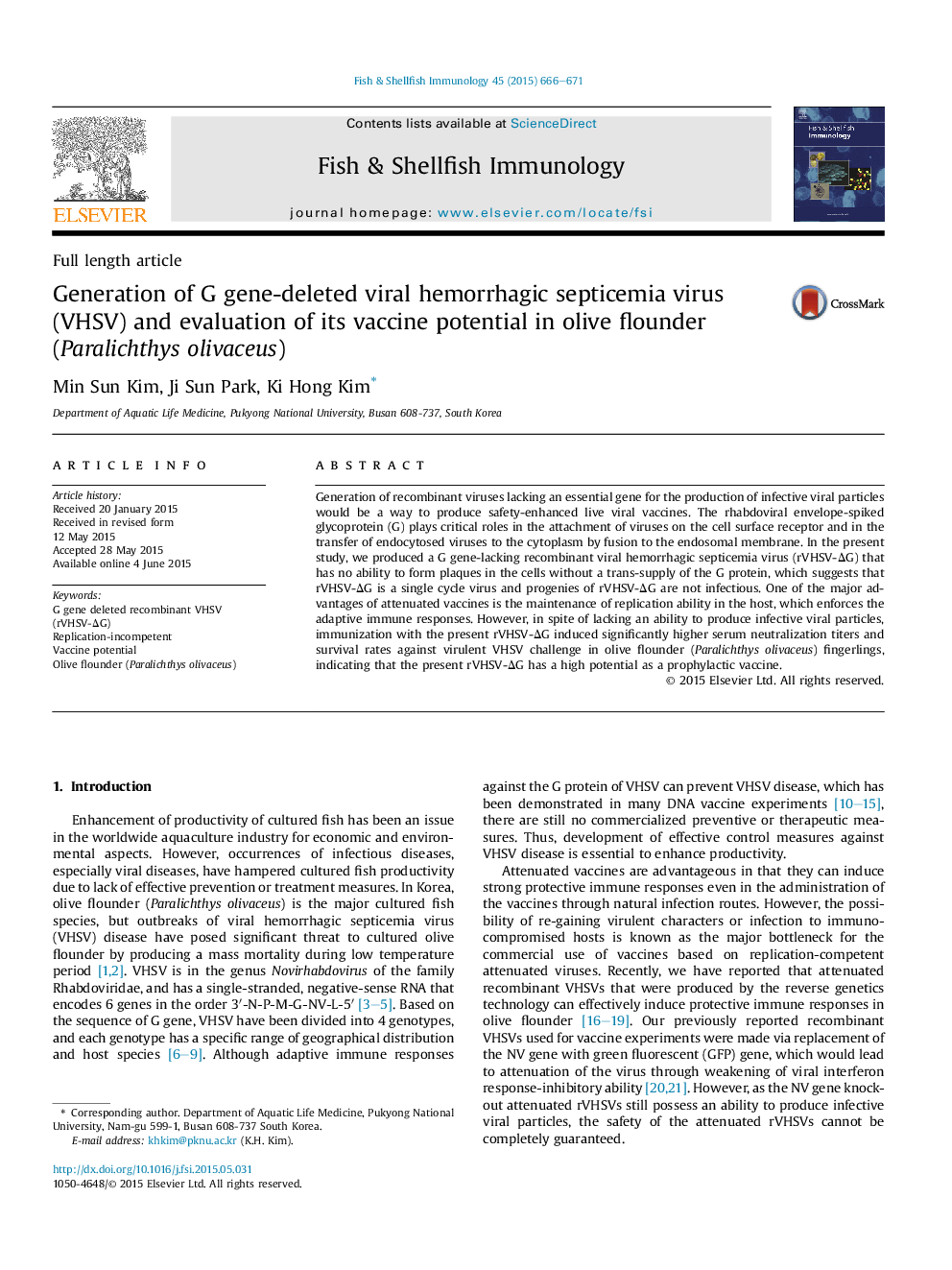| Article ID | Journal | Published Year | Pages | File Type |
|---|---|---|---|---|
| 10971841 | Fish & Shellfish Immunology | 2015 | 6 Pages |
Abstract
Generation of recombinant viruses lacking an essential gene for the production of infective viral particles would be a way to produce safety-enhanced live viral vaccines. The rhabdoviral envelope-spiked glycoprotein (G) plays critical roles in the attachment of viruses on the cell surface receptor and in the transfer of endocytosed viruses to the cytoplasm by fusion to the endosomal membrane. In the present study, we produced a G gene-lacking recombinant viral hemorrhagic septicemia virus (rVHSV-ÎG) that has no ability to form plaques in the cells without a trans-supply of the G protein, which suggests that rVHSV-ÎG is a single cycle virus and progenies of rVHSV-ÎG are not infectious. One of the major advantages of attenuated vaccines is the maintenance of replication ability in the host, which enforces the adaptive immune responses. However, in spite of lacking an ability to produce infective viral particles, immunization with the present rVHSV-ÎG induced significantly higher serum neutralization titers and survival rates against virulent VHSV challenge in olive flounder (Paralichthys olivaceus) fingerlings, indicating that the present rVHSV-ÎG has a high potential as a prophylactic vaccine.
Related Topics
Life Sciences
Agricultural and Biological Sciences
Aquatic Science
Authors
Min Sun Kim, Ji Sun Park, Ki Hong Kim,
